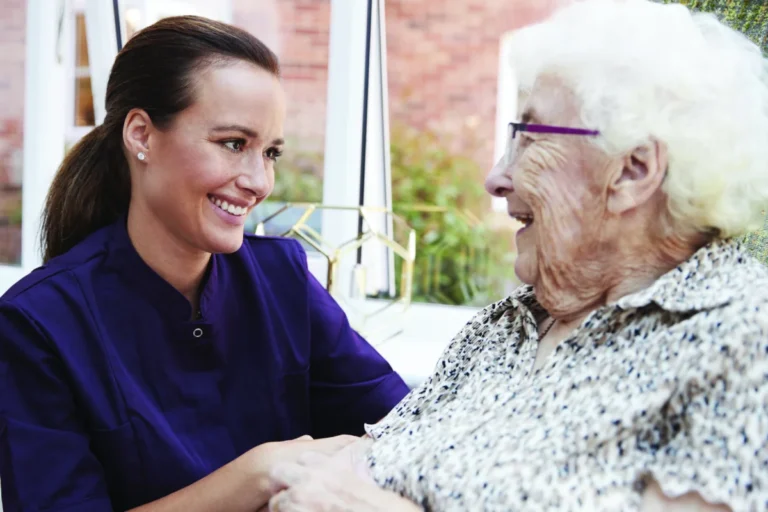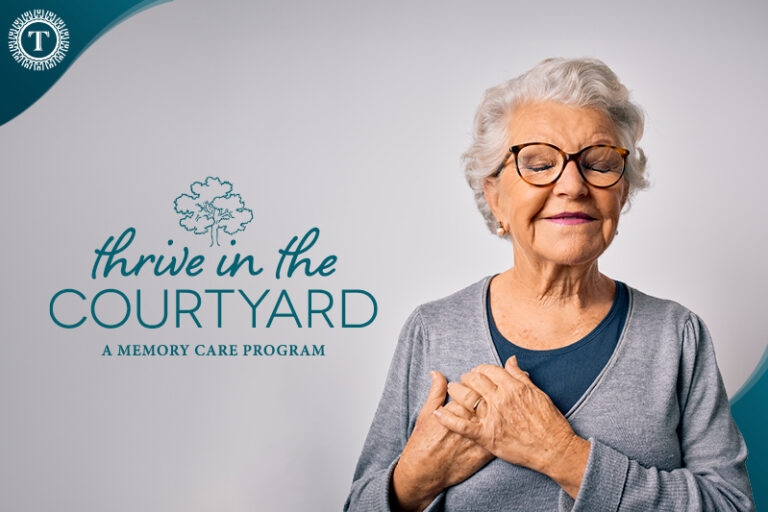CCRCs (continuing care retirement communities) are designed to provide a full continuum of care to seniors who want to stay in the same place through different phases of the aging and care process. They are also known as life plan communities. These all-encompassing communities include independent living, assisted living, skilled nursing, and often memory care.
Settings will vary by the levels of care offered. Most CCRCs have accommodations for seniors that include apartments, townhouses, villas or cottages. Amenities, activity rooms, gyms, art studios and dining rooms may be shared between levels of care or provided separately by level of care.
Couples with different care needs find CCRCs valuable when they want to both reside at the same address. If they have different levels of care needs, they may not be able to stay together in the same apartment, but they can still share meals together, socialize and attend activities at the same community simply by walking through a corridor.
Are Continuing Care Retirement Communities a Good Idea?
The main benefit of CCRCs is the wide range of care, services and activities they provide. A senior can spend the rest of their life in a CCRC. For example, a resident who initially lives in independent living may have health issues later in life which require a higher level of care. A CCRC can move that person up to a higher level of care such as assisted living or skilled nursing care. This gives the resident a sense of stability knowing they are still in the same community they have come to appreciate with the neighbors and staff they now call friends.
Does Medicare Cover Continuing Care Retirement Communities?
Tutera CCRCs do not require buy-ins and operate on a month-to-month contract. Residents can enter any level of care and have priority access to the other various levels of care that may be necessary in the future. Medicare Part A covers medically necessary skilled nursing care—for a limited time and limited amount—if certain requirements are met and if the community is Medicare-certified. These are the types of CCRC contracts identified by AARP that the Centers for Medicare and Medicaid Services controls:
Extensive life-care contract, also called Type A which has the highest fees, but includes a full range of services. For example, you will get unlimited assisted living, medical treatment and skilled nursing care with little or no additional cost.
Modified contract, called Type B which has a limited set of services and charges for services beyond those contracted.
Fee-for-service contract, Type C. In this contract, the initial enrollment fee may be lower. However, residents pay for whatever specific services, such as assisted living, skilled nursing or memory care, that they require.
What’s the Best Time to Move into a Continuing Care Retirement Community?
Most retirement communities require people to be age 55 or more for residence. There is no perfect age to move to a retirement community but transitioning to one earlier rather than later can be beneficial for many reasons. The maintenance-free aspect of the living arrangement means you no longer have to mow grass, shovel snow or paint the house. Friendships, camaraderie, and socializing are also enhanced when you’re surrounded by like-minded people. Studies show spending time with people can enhance a senior’s outlook and improve their self-esteem. In addition, seniors who socialize are more likely to eat more regularly and consume more nutritious meals.
Residents will tell you one of the best times to move is while you’re still healthy and mobile enough to indulge in all the amenities, activities and exciting events which communities like Tutera offer. When you tour, take a look at the variety of health and wellness activities and social events for both independent living quarters, and the assisted living and nursing home areas of the campus.
Where Can I Find a Continuing Care Community?
Tutera has decades of experience helping seniors and their families find the ideal level of care. We welcome your inquiries and can set up a no-obligation personal consultation at your convenience. Call 877-988-8372. You can FIND COMMUNITIES HERE.






